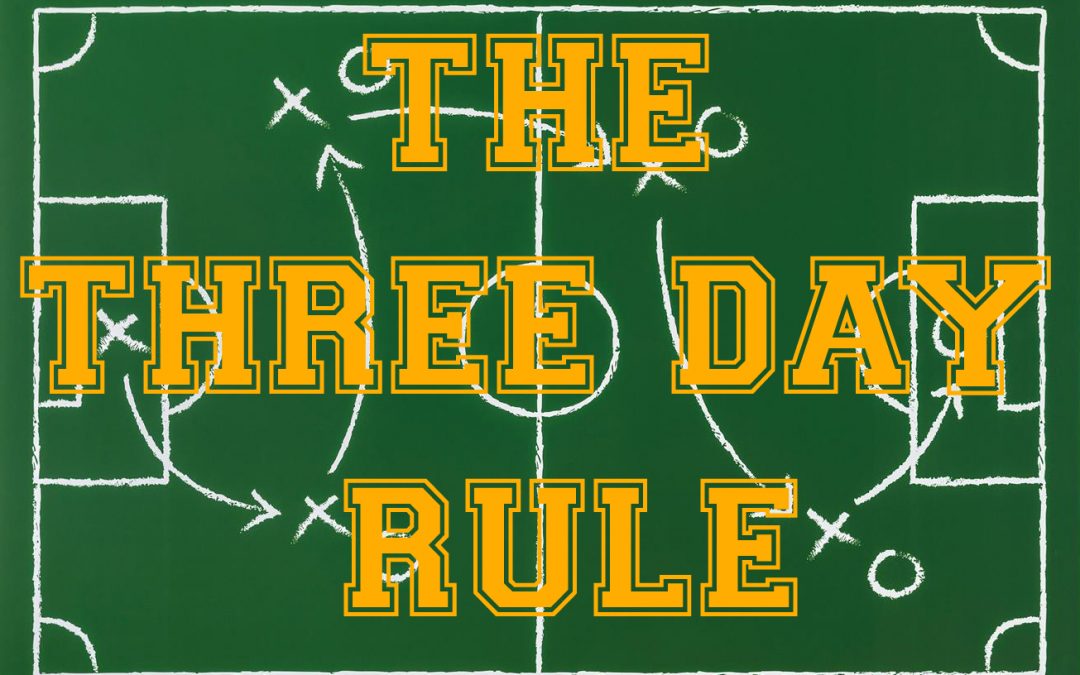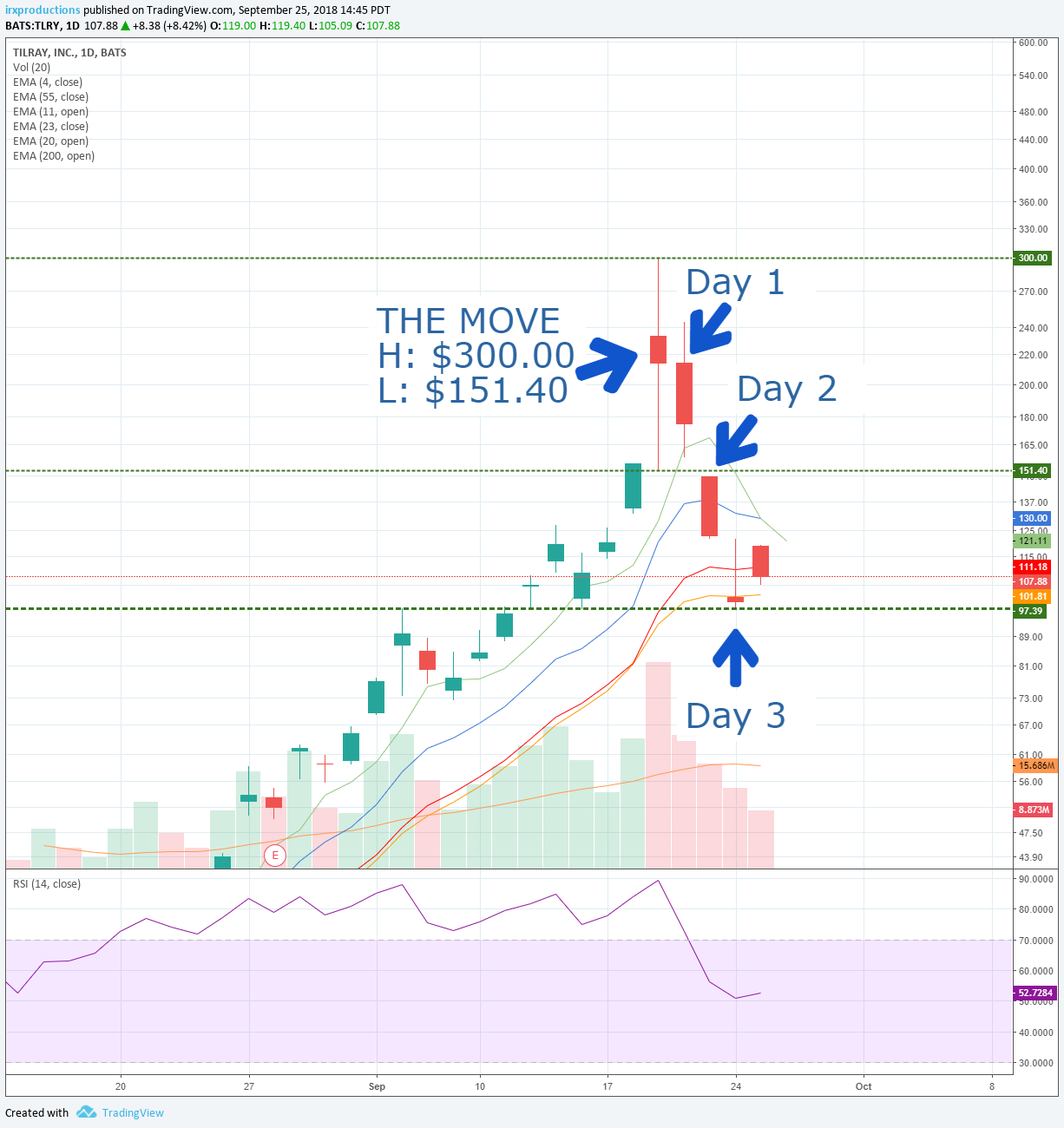What do you do when a stock you own or one you’re interested in has a huge move?
If you own a stock and it plummets, your first instinct might be to run for the door. If you’re interested in buying a stock and it skyrockets, the FOMO (Fear Of Missing Out) might be so powerful that you’re tempted to buy at a higher level.
How do you handle it?
The Three-Day Rule
Watch CNBC’s Fast Money for just a few episodes and you’ll likely hear the concept of the Three-Day Rule.
Although the time limit of three days may seem somewhat arbitrary, the basic concept is this – whenever a stock you’re interested in or one you currently hold does something crazy (like, say, jump from a low of $151.40 to a high of $300.00 and then back again like cannabis stock, Tilray (TLRY), performed on September 19, 2018) don’t do anything for three days.
Instead of buying or selling into the craze, wait at least three trading days before you make any move and give the market some time to settle.
More often than not, a stock that has a huge price movement in one way or another in a single day will experience extreme volatility – bouncing higher and lower – over the following days. By waiting a few trading days, you give the market time to reduce its volatility and for price discovery to be established.
Check out the chart of Tilray following its epic rise and fall within a three day timespan. If you owned the stock, waiting for the market to settle (in this case, longer than three days) will often give you the opportunity to think about the position instead of making a panic move.
After three trading days (or longer, if you’d prefer to be more conservative), you ensure that you’re buying or selling the position at a more accurately-valued level; one that won’t get your face ripped off by the market by having the stock go the opposite direction in a rapid hurry leaving you with more of a loss or less of a gain.
This rule can be incredibly hard to practice as a huge dive in a stock might make you want to sell immediately to avoid further losses or a huge spike might make you feel like you missed the boat (Fear Of Missing Out – FOMO), but in the long run, strict adherence to this rule will pay off more times than it causes you to miss an opportunity.

Disclaimer: Eric "Irk" Jacobson and all other Get Irked contributors are not investment or financial advisers. All strategies, trading ideas, and other information presented comes from non-professional, amateur investors and traders sharing techniques and ideas for general information purposes.
As always, all individuals should consult their financial advisers to determine if an investing idea is right for them. All investing comes with levels of risk with some ideas and strategies carrying more risk than others.
As an individual investor, you are accountable for assessing all risk to determine if the strategy or idea fits with your investment style. All information on Get Irked is presented for educational and informational purposes only.



You must be logged in to post a comment.